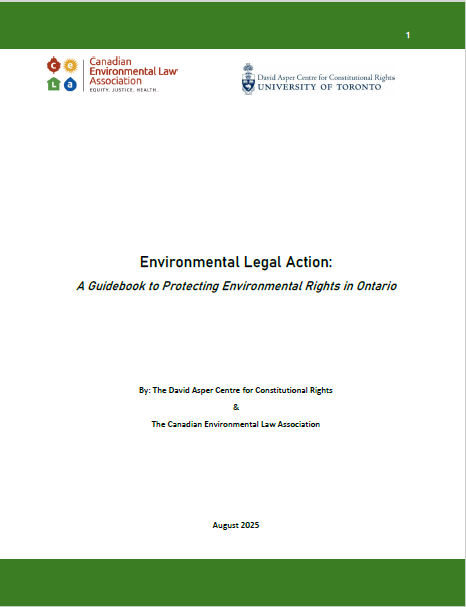By Tyler Lee & Romina Hajizadeh
During her term at Downtown Legal Services, a young and eager Megan Savard was called upon by an elderly man who had been accused of a domestic assault. He struggled with the weight and bureaucracy of the legal system, and Savard was his last hope to defend the case. Based on her interactions with the accused, Savard sensed something was wrong with the charge. Her intuitions were vindicated when, while carefully scanning a pile of evidence, Savard eventually found a photograph depicting a lock of hair ripped from the man’s head — a crucial piece of exculpatory evidence indicating that he was not the aggressor. Savard was hooked: from that moment onwards, she knew that she wanted to be a lawyer representing people in need of legal services, helping them navigate the justice system through their toughest challenges.
We heard this story and many more while speaking with Savard about her career so far, her constitutional law expertise, and what she’s looking forward to in her new role as the Litigator in Residence at the David Asper Centre for Constitutional Rights. We are thrilled to have Megan play an integral role in the Asper Centre student clinical program, which allows students to gain practical experience in constitutional litigation.
Megan Savard’s legal journey began at the University of Toronto, Faculty of Law, where she was a member of the inaugural cohort of student clinicians at the Asper Centre. There, she partnered with OJEN to develop a trial advocacy program for students in rural Ontario. Savard felt as though she was, in some ways, “introducing a brand-new way of looking at the justice system.” In other ways, however, she was conscious of her positionality as a white woman presenting a colonial system. Mindful of this, her goal was to make the justice system as approachable and accessible as possible. For Savard, this experienced reinforced the fact that the justice system is a Western construct, and it is Canada’s obligation to make that system as inclusive as possible. Ultimately, her experience as a clinical student was extremely profound, showing her that the justice system is not solely about individual clients – in many ways, it is also about pursuing “macro-level” change.
After law school, Savard set out to make an impact in the field of criminal law. When asked about what drew her to criminal law in particular, Savard explained that criminal law was particularly high stakes owing to the relationship between the Crown and the accused, and liberty interests at stake with cases involving potential incarceration. Though Savard noted that clients might not always be an external source of validation, she felt that her work involved shining a light on state-perpetuated injustice and vindicating the rights of society at large, rather than just one client. This inspires her relentless pursuit of justice.
During her time at a boutique litigation firm, Savard developed strong litigation skills with a particular focus on winning the hearts of jurists and judges. When asked about her view on what makes for successful litigation in constitutional matters, Savard explained that litigators will rarely win the day if the triers of fact cannot intuitively grasp the ramifications of state excess or state overreach. Savard noted that coming equipped with easily digestible arguments (and several alternative arguments) increases a litigator’s chances of success.
Equipped with these skills, Savard founded Savards LLP in 2021. Though Savard explained that there are quite a few “headaches” that come along with managing a firm, she explained that she enjoyed the freedom to take control of the way she does business and the clients she takes on. She wanted to maintain a practice purely in criminal law with an emphasis on assisting low-income, marginalized clients.
When asked what misconceptions surround her practice and constitutional litigation more broadly, Savard pushed against the notion of defendants “getting off” of Charter violations on a technicality. She noted the recent Quebec Court of Appeal decision in Luamba as an example, illustrating how such litigation can unveil systemic discrimination towards marginalized communities in our justice system. “To be able to shine a spotlight on that and hold the state accountable… you could never call that a technicality.”
Now, Savard is returning to the University of Toronto, where her legal career began. In what is a full-circle moment from her time as a member of the Asper Centre’s inaugural cohort of clinical students, she will now serve as our Litigator in Residence for the 2025/26 academic year. She hopes to positively impact the Asper Centre by getting students involved at every stage of litigation. Savard noted that the Asper Centre clinical program allows students to get the experience of being the client (in the context of interventions), while simultaneously taking a big picture look at the law. For her, this “combination of practical exposure to the trade of law” alongside the big picture perspective the Asper Centre takes to constitutional issues is what gets her most excited for the clinic.
Ultimately, Savard sees the clinic as a space for her to learn as well. “Students are in the business of learning and questioning” our legal institutions, creating an environment that allows practitioners to revisit old notions of how to practice law.
Read more about Megan’s appointment here and listen to Megan giving a master class in criminal defense remedies in a recent episode of the Asper Centre’s Charter: A Course podcast.
Tyler Lee & Romina Hajizadeh are rising 2Ls at the Faculty of Law and the 2025 Asper Centre summer research assistants.

